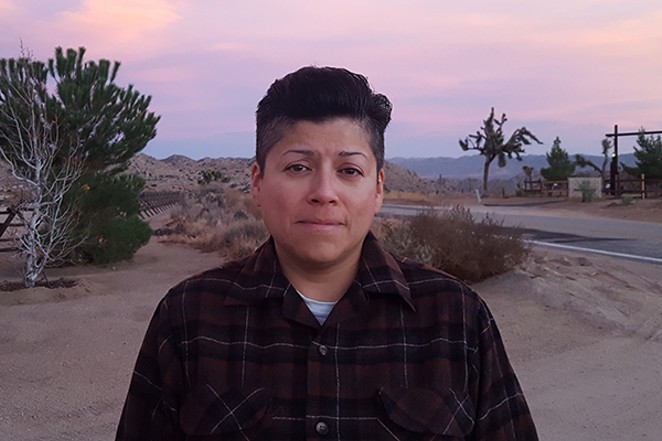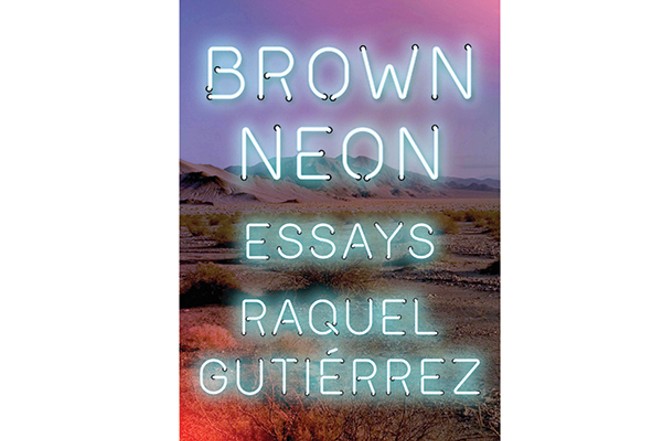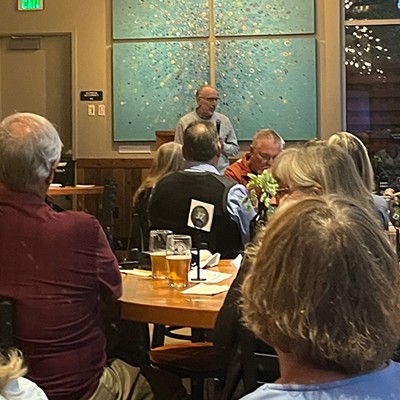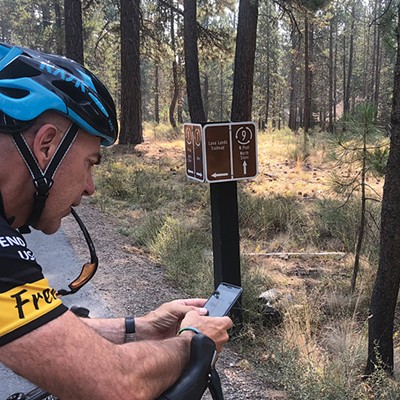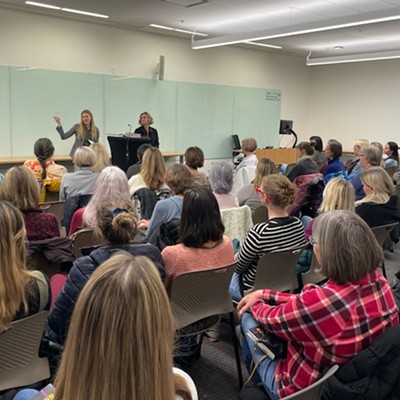There's always a history that's gestured towards when you're in the act of self-naming. Or that you take certain aspects of those histories as launching points for your own self-formation," Raquel Gutierrez says.
A cultural landscape encompasses the art, narrative and lifeways of people interacting with the local environment and in turn, being transformed by it. "Brown Neon" is a collection of ekphrastic essays by Gutierrez. Written between 2017 and 2020, it reflects on identity against the backdrop of the American desert during the Trump administration.
"I wanted to focus on what it means to be a Latinx artist in the Southwest during the Trump era," Gutierrez says. "That begins with a journey back and forth between Tucson and Los Angeles, trying to make a go at a writing career and artistic identity. Then I travel to two land art sites, [discuss] a mini-history of land art, and think about what that all means in the context of the border wall prototypes."
Gutierrez's writing is rooted in personal experience as a queer Latinx artist. They craft and redefine meaning, connection, boundaries and borders across the Southwest. "Brown Neon" provides not a roadmap but guideposts, as pilgrims and immigrants have left through the ages. Those markers that say, "This is how I navigated," and, "I found safe passage here."
"When I was structuring the book, I was thinking about how it was an artistic autobiography or memoir," they say. "[Ekphrasis is] talking about art or describing art in literary capacities. What I took [from that] was an understanding that I can mine my own experiences. And a lot of my experiences are anchored in the experience of art."
Gutierrez excavates personal history and relationships with their late mentor, friends and lovers to explore the landscape of queer Latinx identity and what that means against evolving definitions and perspectives on gender, sexuality, race and privilege.
"[This was] a critical meditation on space and monuments to consider my relationship to the border, what it means to cross these terrains. The ways I'm [traveling] in a very privileged space, thinking through my relationship to my parents as immigrants, and [with] artists who inspire me to get in touch with ideas of land and labor, and the embodiment between the two."
These relationships are mapped onto a changing culture within a wider view of the landscape and land art. Each essay returns to a narrative that is both personal and expansive, exposing and creating multiple points of entry and connection. Gutierrez travels the southern desert in personal stories of friends, art spaces and co-creating to bring that landscape back to intimately curated spaces.
Gutierrez explains, "When you're part of a community, you're witnessing your friends' artwork going from small DIY galleries into more established institutional museum spaces. There's a lot of socio-economic and political conditions that also structure those career trajectories. My work is essentially looking at the tensions that underscore those trajectories. What does it mean for us, Latinx, U.S.-born or U.S.-based children of immigrants, or first-generation, or immigrants, who are eking out careers as artists in these spaces that have historically been inhospitable to us? We're recentering those institutions in the sense of reflecting diverse communities."
"For me," they say, "identity is important because it's a way to honor and remember those who rose up."
Based in Tucson, Arizona, Gutierrez has found a second artistic home locally. "There's a nice connection between Bend and Tucson. And I think that's by way of writers. I came as the fourth or fifth writer from Tucson to work in the program here. There's always been a lot of simpatico between the two communities. Bend is a really good, generous artistic home for me."
Gutierrez's relationship with the desert has grown to include the High Desert, and the OSU-Cascades Low Residency MFA program. This year they are teaching courses in reading for writers, and revision. "We gather for about 10 days with three cohorts. It's been an amazing gift to witness people thinking through projects and piecing them together. Sometimes you write something thinking it's the beginning, but it's actually in the middle of your work. Seeing people come to their own reckonings around linearity, structuring, empathy and what literary lineages they would like their work to be in conversation with [is a gift]."
Writing, art-making and self-formation are all journeys in community. In "Brown Neon," Gutierrez shares one path forward.
"Everyone has their own relationship to this idea of completion," they say. "But I think it's important to always find your fellow travelers."

